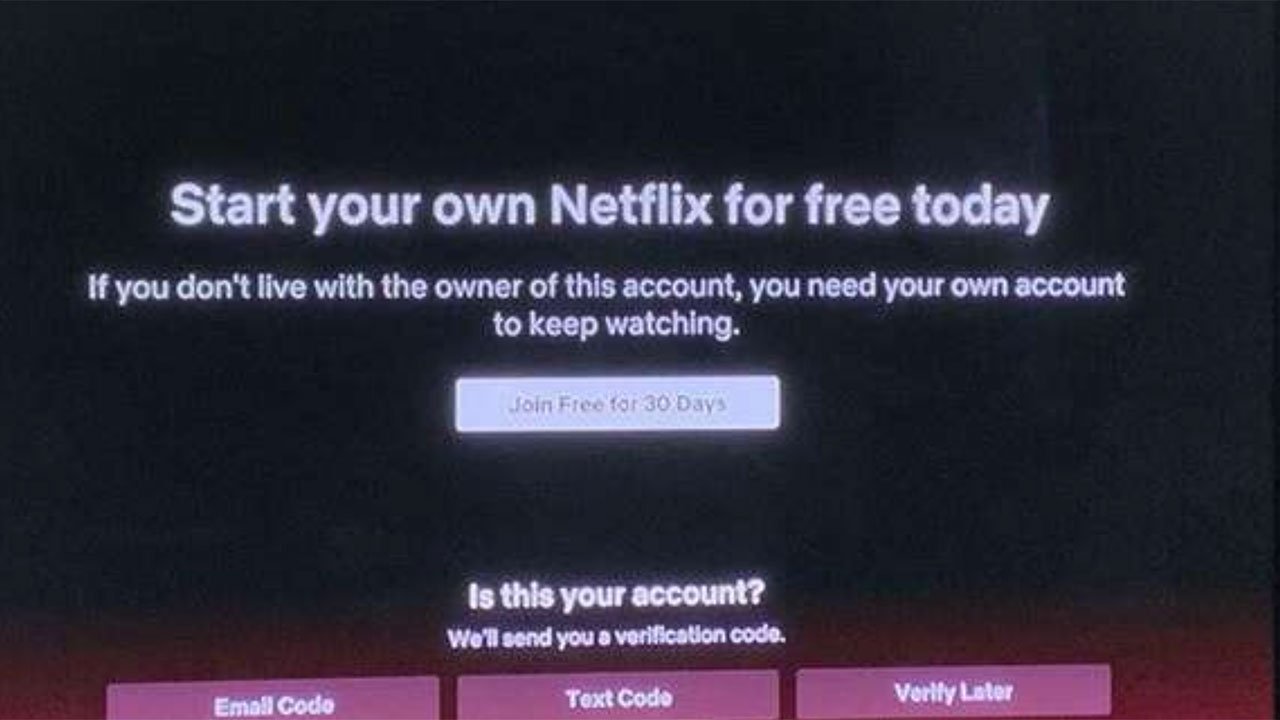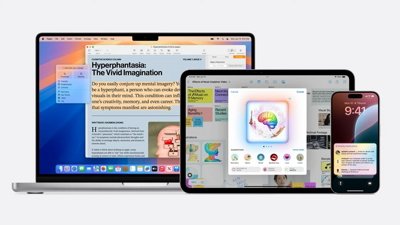Netflix might soon take an uncompromising position on password sharing, as the company this week began to test a verification system designed to dissuade the common practice.
A select number of subscribers this week were met with a prompt reading, "If you don't live with the owner of this account, you need your own account to keep watching," reports The Streamable. Users were then asked to verify their account by entering a generated code sent via email or text.
"This test is designed to help ensure that people using Netflix accounts are authorized to do so," a Netflix representative told the publication.
It is unclear how Netflix is monitoring password usage, though an easy route would be IP address tracking.
The test is reportedly limited to customers accessing the service through smart TVs, though testing could expand at a later date and become standard policy. Alternatively, nothing might come of the test, as the company told CNBC it conducts "hundreds" of similar trials each year.
According to research firm Magid, about 33% of Netflix users share their password with at least one other person, CNBC reports. The practice leads to lost revenue for Netflix, though the firm has done little to thwart freeloaders in the past.
Netflix's basic $8.99-a-month price tier limits streaming to one screen, while the step-up $13.99 tier allows for shows to be streamed to two screens simultaneously. The service's terms and conditions restrict credential sharing to members of a single household.
Greg Peters, Netflix's chief product officer, in an interview with The Wall Street Journal in 2019 said the company monitors password sharing but had no plans to take action against those who access the service without authorization.
 AppleInsider Staff
AppleInsider Staff








 Chip Loder
Chip Loder
 Marko Zivkovic
Marko Zivkovic
 Malcolm Owen
Malcolm Owen

 William Gallagher
William Gallagher
 Christine McKee
Christine McKee
 Andrew O'Hara
Andrew O'Hara
 Andrew Orr
Andrew Orr




-m.jpg)




20 Comments
I can see a few problems with basing this on IP address tracking. My Netflix account allows me to watch on two devices at the same time. Let's say I'm watching from home but my wife wants to watch while she's at work (during lunch, of course). Or perhaps I go on vacation and want to watch Netflix while falling asleep on the beach? How about students who go to college and log in via their parents' account? They are in the same family and should be able to use the same account, but the IP addresses would be vastly different. Hopefully Netflix does some pretty thorough testing before rolling this out to the masses.
If they wanted it to be this way they should have enforced it from the very beginning. The practice is now common and likely has helped Netflix’s penetration. When advertising by the number of screens it’s not unreasonable for the consumer to assume this means their second screen is for another personal contact who is not necessarily in the same household.
As online services begin to feel the squeeze but wish to continue ever growing revenue, I’m beginning to hate all the subtle ways that the services progressively become worse. Eg by festering them with advertising, adding pay-per-view specials, reducing their catalogues or cutting off common usage scenarios like these.
If they are just using an IP address, this becomes problematic with the use of a VPN connection. There are couple VPN services that play nice with Netflix. However, during my research of doing whole home VPN using a router verses individual device, you need to make sure any service you use works through the VPN you have an account with, like Netflix. The problem comes in when the VPN may randomly reassign your public IP address as well as the server location you might be using, If Netflix check the IP location against you home address it could cut you off of the two do not line up.
I looked into getting router that allows selective routing to the VPN and there is only one on the market and it has privacy issues of reporting your traffic to third parties including your VPN activity which negate the reason for having a VPN.
You may not think this is an issue, however, more and more people are using VPN because ISP’s are selling user data.